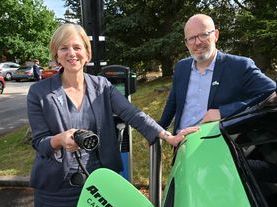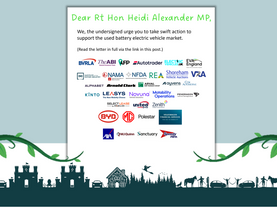The Government needs to pay special attention to the needs of van users if it wants to see this portion of the fleet market hit the 2030 phase-out target, according to the BVRLA.
The van sector faces unique challenges when it comes to making the transition to zero emission motoring, including:
- The cost and hassle associated with installing fast charge points at van depots
- Many van drivers having to rely on public charge points to fuel their electric vans
- On-street charging bays are often too small for vans
- The average zero-emission van is 31% more expensive than its diesel equivalent
- A lack of zero emission vans that are able to carry heavy loads for long distances or provide adequate on-board power for tail-lifts or refrigeration
“I am confident that the Government appreciates the important contribution the van market makes to society and the UK economy, but it has failed to understand that commercial vehicles are a long way behind cars and a targeted plan is needed.” says BVRLA Chief Executive Gerry Keaney.
Today the BVRLA has published its own Van Plan, setting out some clear, practical measures that the Government should consider if it wants to get van fleet decarbonisation on track:
- Ringfenced funding for the van sector
- New van charging grants and funding
- Ensuring the supply chain caters for vans
- Develop van specific targets and requirements for charge point provision
- Dropping the exclusion of rented and leased vans from the super deduction
Keaney continues: “Although the shift to zero-emission cars is progressing at pace, van users face different challenges. Electric van technology lags far behind cars and as yet there are no electric vans on the market capable of towing or delivering long ranges.”
“Without the right fiscal support millions of van drivers and fleet operators could see business recovery stifled and Government could see zero-emission targets not met if steps are not taken now to support fleets and the 3.4 million people who rely on vans every day to do their job.”
With increased demand from the home delivery and essential services sectors adding to the many industries who rely on vans to carry out their day-to-day business, it is now estimated that 1-in-10 workers currently rely on a van for their job.
Keaney concludes: “The UK’s reliance on vans to transit equipment, goods and people has never been greater. Our members are collectively responsible for almost 800,000 vans on UK roads, and they buy around 65% of all new vans sold each year, so we have a lot of skin in the game. We will continue to remind policymakers that commercial vehicles must not play second fiddle to cars.”
-END-
Notes to editors:



